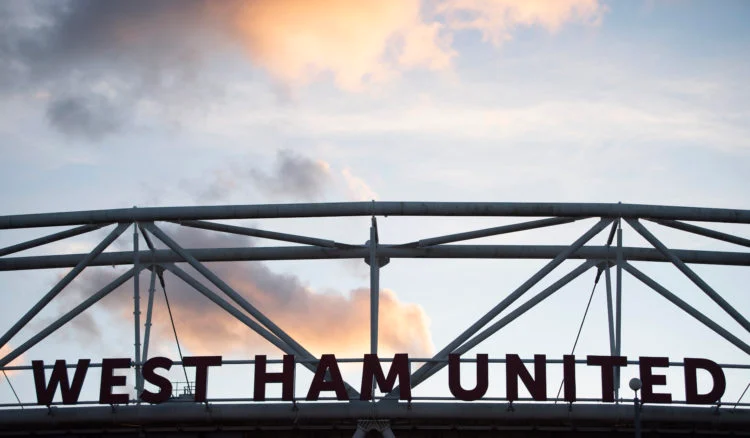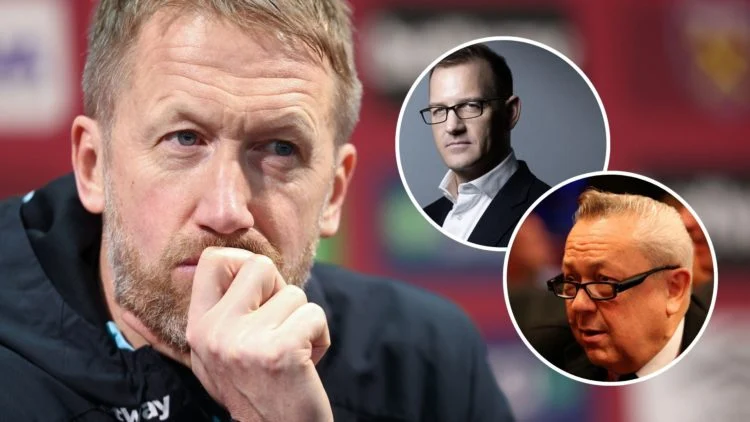West Ham Prepare Fans for £80m Financial Hit, But It May Prove Beneficial in the Long Run
West Ham’s £80m Financial Setback Sparks Controversy but Could Drive Positive Change

West Ham Grapples with Financial Constraints Amidst PSR Regulations
There has been a great deal of expectation management taking place at West Ham in recent months.
Hammers supporters have experienced a rollercoaster of emotions regarding the club’s ambitions, with optimism and frustration often interchanging.
Back in January, the club reportedly tabled a substantial £57 million bid for Aston Villa’s Jhon Duran, a move that seemed to signal serious intent in the transfer market.
However, since then, West Ham has been keen to stress the financial limitations they are working under, citing the constraints of the Premier League’s Profit and Sustainability Rules (PSR).
The club has gone from appearing financially aggressive in the winter window to now pleading poverty, a drastic shift that has left fans uncertain about what to expect going forward.
PSR Restrictions Loom Large for West Ham

The financial challenges facing West Ham are not unique to them.
Even Newcastle United, the world’s richest club following their Saudi-backed takeover, have found themselves in a position where they are being forced to offload players in order to comply with PSR regulations.
The reality is that these financial rules are affecting numerous Premier League teams, with Aston Villa among those particularly enraged by their impact.
Villa’s owners have been so frustrated by the constraints imposed by PSR that they have even threatened to take legal action against the Premier League.
Despite such protests, the rules have been reaffirmed and will remain in place for the foreseeable future, meaning clubs must find ways to operate within them.
This is something West Ham must now accept, as the regulations will directly impact their ability to spend in the coming transfer windows.
West Ham’s £100m Summer Sales Plan
In order to navigate these financial challenges, West Ham has outlined a plan to raise £100 million through player sales this summer.
The success of this strategy will be crucial in determining how much money new manager Graham Potter—if officially appointed—will have at his disposal to reshape the squad.
If this season has proven anything, it is that a squad overhaul is desperately needed.
West Ham’s team, while boasting some quality, has shown clear shortcomings that need to be addressed.
Recruitment in recent windows has been hit-and-miss, with some big-money signings failing to justify their price tags.
If Potter is to implement his footballing philosophy effectively, he will require a squad that better suits his tactical approach.
Broken Promises at the London Stadium?
When West Ham moved from Upton Park to the London Stadium, fans were promised that the transition would allow the club to reach the next level.
The board claimed that the increased capacity and commercial opportunities would provide West Ham with the financial firepower needed to consistently compete in the transfer market.
To an extent, the club has made progress. Under David Moyes, West Ham achieved three consecutive seasons of European qualification, recorded their highest-ever Premier League points total, and, most notably, secured their first major trophy in 43 years by winning the UEFA Europa Conference League.
These accomplishments certainly suggest that the club has advanced in some areas.
However, the success has not been sustained, and supporters are demanding more.
They want to see the club continue to push forward, rather than fall back into mediocrity.
Now, a recent update from a source close to co-owner David Sullivan paints a grim picture of West Ham’s financial situation, raising concerns about the club’s ability to maintain its competitive edge.
West Ham Braces Fans for £80m Financial Blow
West Ham has now warned fans of a major financial setback, revealing that the club is set to post losses in the region of £80 million.
While this news is undeniably concerning, it could also serve as a catalyst for positive change in how the club operates.
Sean Whetstone, a trusted insider with close ties to Sullivan and vice-chair Karren Brady, has detailed the scale of West Ham’s financial troubles.
In his latest update, he suggests that the club is facing a dire economic situation, exacerbated by various decisions made over the past year.
A key issue appears to be the recent U-turn on concessionary ticket pricing.
Initially, West Ham had planned to increase season ticket prices and remove certain discounts, but after a backlash from supporters, the club reversed its stance.
While this was the right move from a fan perspective, it has reportedly cost the club millions in potential revenue, further worsening its financial position.
‘Our Finances Are a Mess,’ Admits West Ham Source

A senior West Ham source has provided additional insight into the club’s financial predicament.
Speaking to Whetstone, they admitted that the club is in serious trouble, even if no significant money is spent in the upcoming transfer window.
“West Ham’s surprise season ticket price freeze and U-turn on concessions policy last week has cost the club millions in potential revenue,” Whetstone reported.
“The board believed it was the right thing to do, despite the financial challenges ahead.”
The West Ham source elaborated, stating:
“Losses this season and next season will be huge—around £75m to £80m—even if we spend nothing this summer, apart from the planned £33m move for Jean-Clair Todibo.
“The significant spending on players over the past two years has caught up with us, especially with no European football, lower Premier League merit payments, and fewer televised games than usual.
Under Financial Fair Play (FFP) rules, even injecting capital wouldn’t help.”
Could West Ham’s Financial Crisis Be a Blessing in Disguise?
While these financial challenges undoubtedly present difficulties, they could also force West Ham into making smarter decisions moving forward.
The club will have no choice but to become more strategic and efficient in its recruitment process, something they have struggled with in the past.
With tighter financial constraints, West Ham will need to identify transfer targets with greater precision.
Head of recruitment Kyle Macauley will have to ensure that every signing represents good value, as there will be no room for expensive mistakes.
This shift in approach could lead to a more sustainable long-term strategy. Overpaying for aging players or big-name stars who fail to deliver may become a thing of the past.
Instead, West Ham could look to follow the model set by clubs like Brighton, Brentford, and Bournemouth—teams that have excelled in the transfer market by identifying undervalued talent and selling players at the right time for maximum profit.
West Ham, as a bigger club with greater resources, should be able to execute this approach even more effectively than those teams.
If done correctly, this forced shift in strategy could ultimately benefit the club both on and off the pitch, leading to a more stable and successful future.



